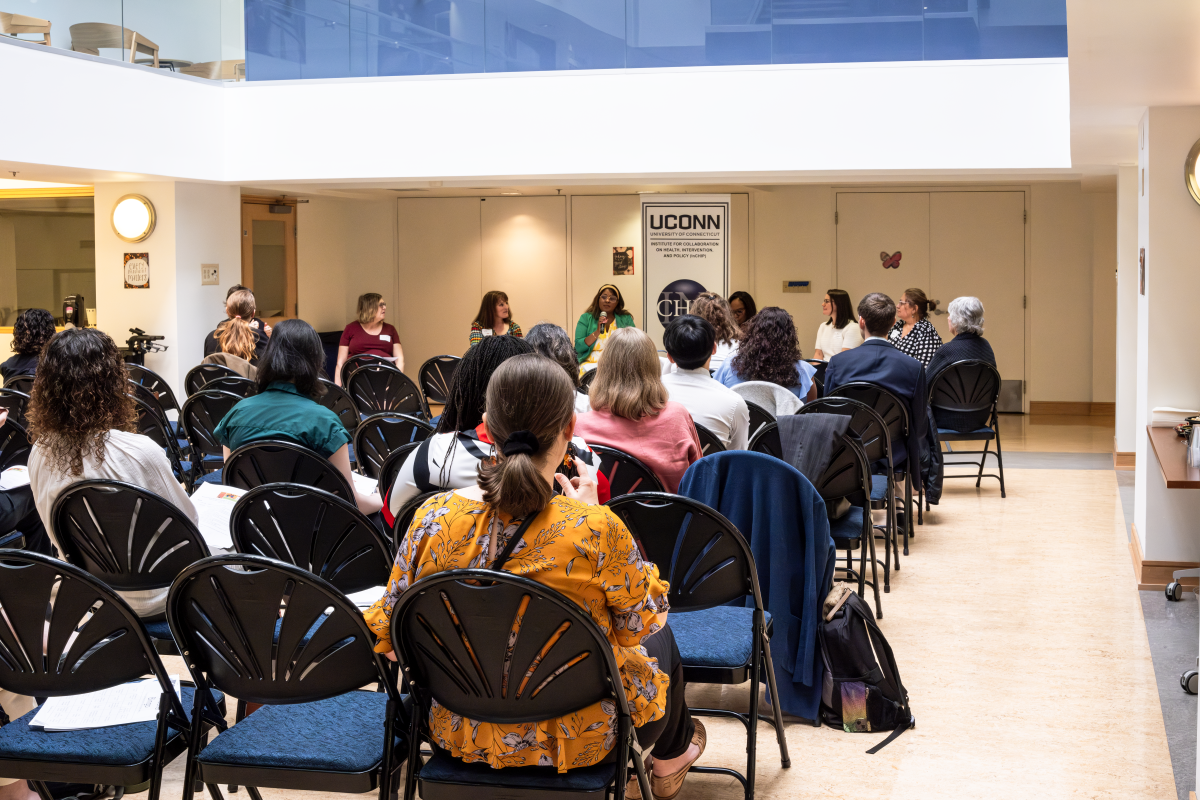 Older men and women consume less calcium through their diets than younger adults, and may need to adjust their food intake or increase their use of calcium supplements to prevent osteoporosis, according to researchers at the University of Connecticut and Yale University.
Older men and women consume less calcium through their diets than younger adults, and may need to adjust their food intake or increase their use of calcium supplements to prevent osteoporosis, according to researchers at the University of Connecticut and Yale University.
The research, published this month in the Journal of the American Dietetic Association, looked at calcium and overall food intake in 9,475 adults who participated in the National Health and Nutrition Examination Survey from 2003 to 2006.
“By age 50, daily calcium intake through food for most individuals, especially women, is substantially below recommended levels established by the Institute of Medicine,” says biostatistician Stephen J. Walsh, an associate professor in the UConn School of Nursing who is the study’s principal investigator.
“The situation becomes progressively worse across the 60-, 70-, and 80-year age groups of Americans,” Walsh continues. “Inadequate consumption of calcium increases the risk of osteoporosis – a weakening of bones that occurs with aging and that can lead to disability and death.”
Calcium is a mineral found in dairy products such as low fat milk, cheese, and yogurt, and green leafy vegetables. More than 99 percent of the calcium we absorb from foods is found in our bones and teeth. If we don’t eat enough calcium, our bodies leach calcium from our bones and over time this decreases bone mass, leading to disease such as osteoporosis.
While plenty of research has shown the importance of calcium in maintaining proper bone health, the UConn-Yale study was unique in that it evaluated both dietary and supplemental calcium intake in the U.S. population across different adult age groups and compared the data to overall eating habits and food – or energy – intake among the groups.
The researchers say one reason many older individuals aren’t getting enough calcium may be that people tend to eat less food as they age.
Even though the study showed that as men and women aged, calcium supplement use increased, it was not sufficient in meeting recommended levels of calcium intake. Men 81 years of age and older were still consuming about 23 percent less calcium and women of that age group 14 percent less calcium than men and women age 19 to 30, according to median dietary calcium intake figures drawn from the National Health and Nutrition Examination Survey data.
Using the same pool of data, the researchers identified a significant drop in overall daily calorie consumption as people got older. The median energy intake among men age 81 and older was 1,733 calories a day, compared to 2,668 calories per day ingested by men in the age group 19 to 30. For women, median energy intake showed a 28 percent reduction from the youngest to the oldest age group, from 1,844 calories a day to 1,325 calories daily.
Based on the results, the scientists concluded that “new approaches to increasing the frequency and level of calcium supplement use to enhance calcium density may be necessary to reduce osteoporosis risks among older Americans.”
Jane E. Kerstetter, a professor of allied health sciences at UConn and a co-investigator on the study, says, “Calcium plays a fundamental role in promoting bone health and forestalling osteoporosis. In light of evidence that energy (food) intake declines with aging, calcium-dense foods and calcium supplements become vital factors in maintaining adequate calcium intake across the lifespan.”
In November 2010, the Institute of Medicine issued new guidelines for daily calcium intake. The current guidelines recommend that men and women ages 19 to 50 consume 1,000 mg of calcium a day; however, after age 51 men are recommended to continue to consume 1,000 mg daily, while women are recommended to increase consumption to 1,200 mg daily.
To compensate for the lack of dietary calcium, individuals are taking more calcium supplements.
“In the United States, most persons over age 50 use some type of dietary supplement that includes calcium,” Walsh says. “However, many older persons – roughly 45 percent of men and 35 percent of women – do not use supplements. Among those who do use supplements, the amount of calcium obtained through supplements often is not sufficient to close the gap between the amount missing in their diet and the daily intake recommended by the Institute of Medicine.”
Kerstetter says calcium intake from the diet should come first and foremost.
Typically, one serving of dairy (1 cup of milk, 6 oz of yogurt, or 1½ oz of cheese) provides 300 mg of calcium. If a person consumes three servings of dairy daily they will ingest 900 mg of calcium, which is often supplemented by an additional 300 mg from a variety of other non-dairy foods if the person is on a well-rounded diet. A total of 1,200 mg of daily calcium is sufficient to meet recommended guidelines for most people, says Kerstetter. Those who can’t tolerate dairy products should consider calcium-fortified foods, such as orange juice or over-the-counter nutrition supplements containing calcium, which are best absorbed during meals due to increased acid production in the stomach.
However, individuals should consult a medical professional before starting a new calcium supplementation regimen, she adds, since one of the potential side effects of consuming too much calcium is kidney stones.
The lead author for the study was Kelsey Mangano, a registered dietitian and UConn doctoral student in the Department of Nutritional Sciences in the College of Agriculture and Natural Resources. Dr. Anne M. Kenny, a geriatrician at the University of Connecticut Health Center who studies osteoporosis, served as a co-investigator. Dr. Karl Insogna, a professor of internal medicine in the Department of Internal Medicine at Yale University and an endocrinologist specializing in bone diseases, also participated.


